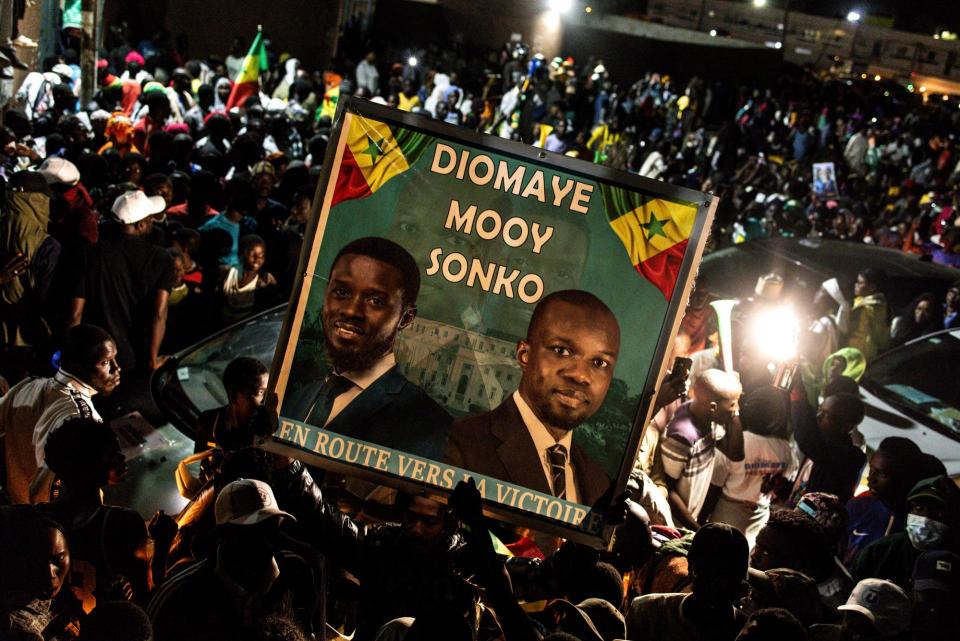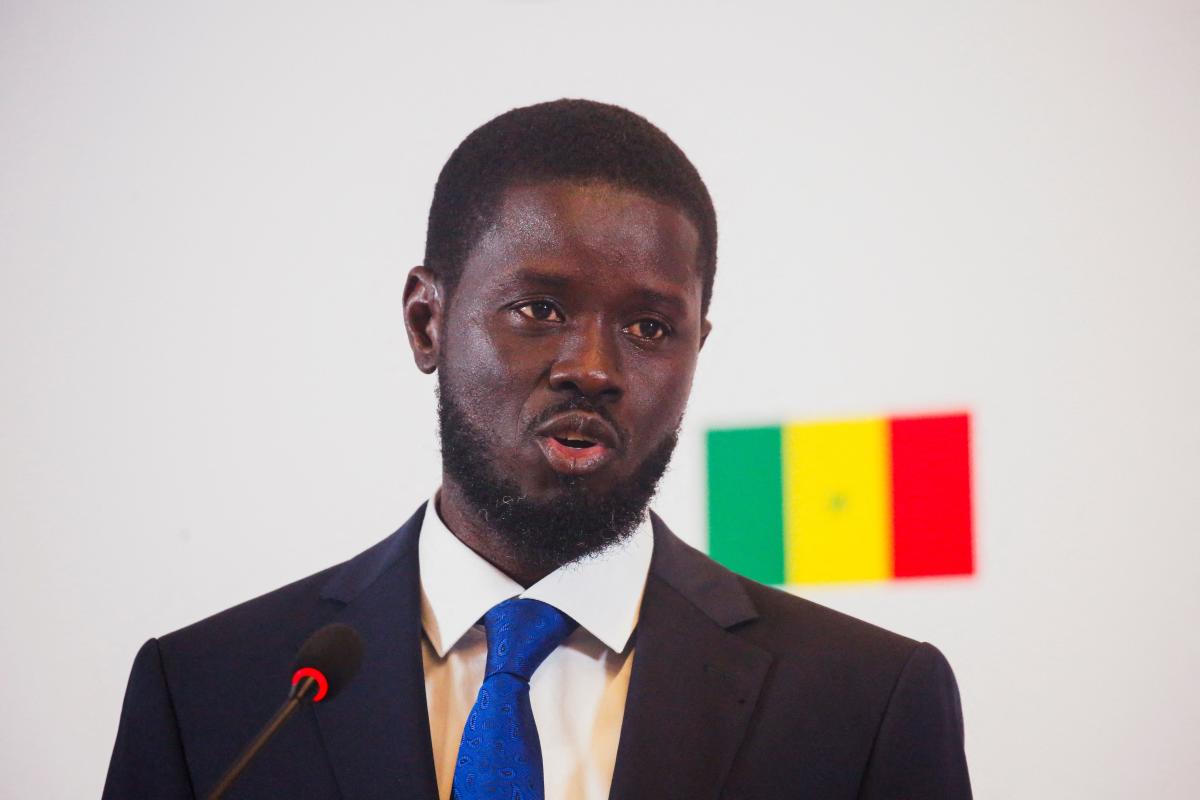The News
Bassirou Diomaye Faye, a Senegalese political newcomer who is set to be declared the country’s next president, has vowed to govern with humility and transparency.
Provisional results from Sunday’s presidential election suggest Faye, an opposition candidate, secured 53.7% of the vote, followed by former prime minister Amadou Ba, of the ruling coalition, on 36.2%. The electoral commission said those results were based on tallies from 90% of polling stations.
Faye spoke of his proposed style of government in a speech delivered after Ba called him to concede defeat.
He said Senegalese voters had decided on a “break” from the past by choosing him. “I pledge to govern with humility and transparency, and to fight corruption at all levels,” he told a press conference.
Know More
Faye, a 44-year-old former tax inspector, will become Africa’s youngest democratically elected head of state. And judging by his policy promises — which include reforming the euro-pegged CFA currency system — Senegal could be headed towards a divergent relationship with France.
Winning the contest in the first round and at his first attempt suggests Faye is a popular candidate whose 18 competitors never stood a chance. In reality, Faye owes his rise to 49-year-old Ousmane Sonko, Senegal’s best known opposition politician.
Sonko has been the government’s loudest critic since finishing third in the 2019 elections when Sall was re-elected. His political machine tapped into youth disillusionment over Sall’s struggle to solve an unemployment crisis that has accelerated a deadly migration-by-boat wave to Europe.
Faye met Sonko during their time as tax officials, and joined the latter in politics after the political party PASTEF was formed in 2014, according to Faye’s campaign biography, climbing to the role of general secretary.
Chosen to inherit this movement after Sonko was disqualified from running for the presidency, Faye will enter the top job as a relatively unknown politician. “Diomaye is Sonko” was his campaign’s slogan in the lead up to Sunday. But it will be Faye who takes the oath of office when Sall leaves on April 2.

Alexis’s view
Two weeks ago, he was in prison. That’s been the remarkable trajectory of Faye’s life over the last fortnight. He was behind bars on various charges, including defamation, prior to his release on March 14.
Senegal, usually lauded as one of Africa’s most stable democracies, was still reeling from President Macky Sall’s move to delay the vote to select his successor. But, following Sunday’s vote, 44-year-old Faye is set to become Senegal’s youngest ever president — and the country could be on the brink of a generational shift.
Faye’s rapid ascent and relative youth suggest he could genuinely become an agent of change. His age clearly sets him apart on a continent dominated by elderly leaders. For example, he’s less than half the age of Cameroon’s 91-year-old president. With that comes an entirely different perspective that should make him more attuned to the experiences of young people in Senegal, 60% of whom are aged under 25.
Some young people are so desperate for a brighter future that, faced with a lack of job opportunities, they try to reach Europe in small boats. Many don’t make it. Faye campaigned on his vow to shake up the established order through policies such as a currency change and renegotiating oil and gas contracts.
The scenes of rapturous celebrations following the election are heartwarming. But I’ve seen similar outpourings of joy after other elections, so I’m all too aware that it doesn’t necessarily end well. I recall the fanfare in Senegal 12 years ago when Sall defeated his predecessor, Abdoulaye Wade, who was chasing an unconstitutional third term. But, under Sall, wealth hasn’t been distributed across Senegal’s relatively strong economy.
The hope is that Faye will bring a genuinely fresh approach. Unlike Sall — who had already served as prime minister when he became president — he is a political neophyte. That novice status could prove to be his biggest strength.
Notable
-
Faye’s victory is “a triumph, a shock and a wake-up call,” writes Le Monde in an editorial. It argues that the undisputed first round victory was a “good democratic surprise” following the coups that have transformed a number of West African countries in recent years.
